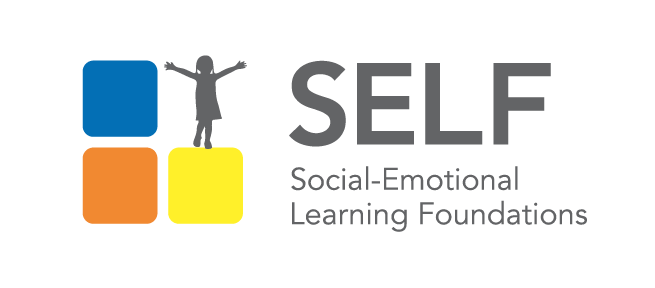About Us
While academic achievement is often the primary goal in education, studies show children’s academic learning is inextricably tied to their social-emotional growth and development (Blair & Diamond, 2008; Riggs, Greenberg, Kusché, & Pentz, 2006). Kindergarten and first grade, particularly, are critical years in fostering school adjustment (Downer & Pianta, 2006).
Given the demand for accountability and the emphasis on academic results, however, educators are often pressured to maximize academic instruction and learning at the expense of social-emotional learning — even in the primary grades and even for children at risk for emotional and behavioral difficulties.
To address this challenge, our team of researchers developed a theoretically-based intervention titled Social-Emotional Learning Foundations (SELF). SELF utilizes storybooks to integrate social-emotional learning and K-1 literacy instruction. Our efficacy study of more than 1,000 children over 3 years indicated that SELF holds promise for fostering K-1 children’s social-emotional learning and providing the additional support needed for children at risk for emotional and/or behavioral issues.
Meet the SELF Team
 |
Nancy Corbett, Ph.D. is a retired faculty member in the School of Special Education, School Psychology, and Early Childhood Studies in the University of Florida’s College of Education. As co-Investigator for the SELF research project, her work currently focuses on literacy and the integration of academics and social-emotional learning interventions with an emphasis on self-regulation for children at risk for developing learning and behavior difficulties. |
 |
Ann Daunic, Ph.D. is an Emeritus Scholar in the School of Special Education, School Psychology, and Early Childhood Studies in the University of Florida’s College of Education. Currently Principal Investigator for the SELF research project, her work has focused on cognitive-behavioral approaches to the prevention of emotional and behavioral disorders and strengthening language-based self-regulation among young children at risk. |
 |
Stephen W. Smith, Ph.D. is a professor of special education at the University of Florida and he is currently a Co-Principal Investigator for the SELF research project. His research focuses on effective behavior prevention strategies and teaching students’ self-regulation skills to reduce aggression and violence in schools. |
 |
James Algina, Ed.D. is an Emeritus Professor in the School of Human Development and Organizational Studies in the University of Florida’s College of Education. His recent work has focused on design and analysis of cluster-randomized experimental designs for early childhood and elementary education research. |
 |
Pam Chalfant, Ph.D. co-authored the Social Emotional Learning Foundations (SELF) curriculum and currently serves as the Early Learning Senior Manager for the Lastinger Center for Learning at the UF College of Education. Her research interests include providing high-quality online professional development to all teachers and leaders, and supporting children’s language, literacy, and social-emotional development. |
 |
Lourdes Santiago Poventud, Ph.D. co-authored the Social Emotional Learning Foundations (SELF) curriculum and is currently an Instructional Designer for the Lastinger Center for Learning at the UF College of Education. Her research interests include language and reading acquisition interventions for struggling readers, including English language learners, as well as supporting children’s language development and academic growth via social-emotional learning. |
 |
Delaney Boss, M.Ed. is a doctoral candidate in the School Psychology program in the University of Florida’s College of Education. Her research and clinical interests include children with emotional behavioral disorders, social-emotional learning, and assessment. |
 |
Emily Crews, M.Ed. is a doctoral candidate in Special Education at the University of Florida and is currently a research assistant for the SELF research project. Her research focuses on beginning teacher mentoring and support with an emphasis on behavior management. |
